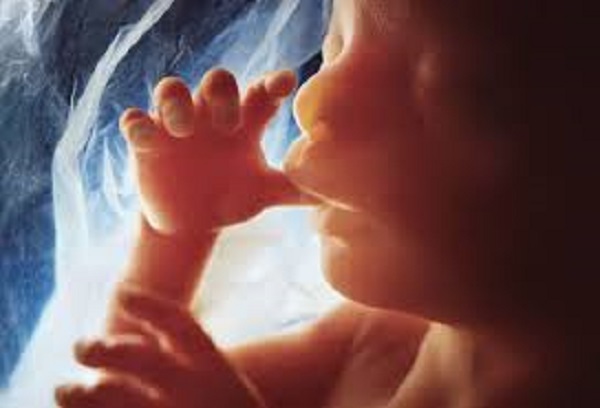An Arkansas bill to ban abortions once Roe v. Wade is overturned is on its way to the governor’s desk.
The state House approved the Human Life Protection Act (Senate Bill 149) by a strong majority on Thursday, after the state Senate passed it earlier this year.
Gov. Asa Hutchinson, a pro-life Republican, “expects to sign the bill next week,” a spokesman told NPR in Little Rock.
The bill is necessary because the infamous abortion case Roe v. Wade crippled states’ ability to protect unborn babies from abortion. Some hope that the new U.S. Supreme Court justices will overturn the ruling, but even if they do, abortions will remain legal in many states. The Arkansas bill would change that, making it one of a handful of states that would immediately protect unborn babies once the case is overturned.
“It’s time for the United States to redress and correct what many believe is a grave injustice and a crime against humanity which is being perpetuated by the decisions of Roe v. Wade,” said state Sen. Jason Rapert, the lead sponsor of the bill.
The bill will prohibit abortions except to save the mother’s life. It also will allow abortionists to be charged with a felony for aborting an unborn baby.
State Rep. Mary Bentley, the House sponsor of the bill, called on lawmakers to protect human life Thursday before the vote, according to the AP.
“You have the opportunity to articulate the humanity of human beings and voice our will to protect and honor human life by passing this bill,” she said.
A few lawmakers, however, complained that the bill does not include exceptions for rape, incest or fatal fetal anomalies. State Rep. Dan Douglas, a Republican who says he is pro-life, argued that women should be allowed to abort unborn babies in difficult circumstances.
SIGN THE PETITION Stop Infanticide! Stop Abortions Up to Birth!
“Who are we to sit in judgment of these women making a decision between them and their physician and their God above?” Douglas said. “It is their right to do that and not ours.”
Bentley replied that she used to work at the Arkansas Children’s Hospital, and doctors saved many lives of babies with disabilities.
“Miracles still happen, and I’ve seen miracles in this hospital too many times,” she said.
The bill compares abortion to similar human rights injustices that the U.S. Supreme Court once upheld and then later condemned, such as slavery.
“The United States Supreme Court committed a grave injustice and a crime against humanity in the Dred Scott decision by denying personhood to a class of human beings, African-Americans,” the bill states. “It is time for the United States Supreme Court to redress and correct the grave injustices and crimes against humanity which is being perpetuated by their decisions in Roe v. Wade, Doe v. Bolton, and Planned Parenthood v. Casey.”
It also points to scientific evidence that life begins at conception, as well as to the 3,249 unborn babies who were aborted in Arkansas in 2017, according to the state Department of Health.
A similar bill is moving through the Kentucky House this winter.
The Supreme Court took away the states’ ability to protect unborn babies from abortion under Roe, and instead allowed abortion on demand through all nine months of pregnancy. Roe made the United States one of only seven countries in the world that allows elective abortions after 20 weeks, a fact confirmed by the Washington Post fact checker.
More than 60 million unborn babies have been aborted since 1973 in America.
Pro-life advocates hope the new conservative U.S. Supreme Court will reverse the pro-abortion ruling and allow states to restrict or outlaw the killing of the unborn. But even if it does, many states still will allow abortions.
About a dozen states have laws in place that immediately would protect the unborn when Roe is overturned. Legal scholars give different estimates, though. In 2017, the abortion advocacy group NARAL predicted that 13 states immediately would ban abortions if the high court overturns Roe. Last year, the Center for Reproductive Rights put their estimate at 22 states.








